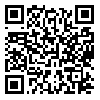Volume 38 - Continuously Updated
IJN 2025, 38 - Continuously Updated: 0-0 |
Back to browse issues page
Download citation:
BibTeX | RIS | EndNote | Medlars | ProCite | Reference Manager | RefWorks
Send citation to:



BibTeX | RIS | EndNote | Medlars | ProCite | Reference Manager | RefWorks
Send citation to:
Sharifian S, Kianfar A, Sayadi A R, Akbari A, Jalali T, Khodadadizadeh A. The Effect of Collaborative Learning Using a Social Media Platform on the Clinical Competence of Nursing Students. IJN 2025; 38 (S1 ) : 3383.1
URL: http://ijn.iums.ac.ir/article-1-3848-en.html
URL: http://ijn.iums.ac.ir/article-1-3848-en.html
Sakineh Sharifian1 

 , Asma Kianfar2
, Asma Kianfar2 

 , Ahmad Reza Sayadi3
, Ahmad Reza Sayadi3 

 , Ali Akbari2
, Ali Akbari2 

 , Tayebeh Jalali4
, Tayebeh Jalali4 

 , Ali Khodadadizadeh5
, Ali Khodadadizadeh5 




 , Asma Kianfar2
, Asma Kianfar2 

 , Ahmad Reza Sayadi3
, Ahmad Reza Sayadi3 

 , Ali Akbari2
, Ali Akbari2 

 , Tayebeh Jalali4
, Tayebeh Jalali4 

 , Ali Khodadadizadeh5
, Ali Khodadadizadeh5 


1- Department of Nursing Management, Nursing and Midwifery Care Research Center, School of Nursing and Midwifery, Iran University of Medical Sciences, Tehran, Iran.
2- Department of Medical Surgical Nursing, School of Nursing and Midwifery, Rafsanjan University of Medical Sciences, Rafsanjan, Iran.
3- Department of Psychiatric Nursing, Social Determinants of Health Research Center, School of Nursing and Midwifery, Rafsanjan University of Medical Sciences, Rafsanjan, Iran.
4- Department of Student Research Committe, Kerman University of Medical Sciences, Iran.
5- Department of Medical Surgical Nursing ,School of Nursing and Midwifery, Social Determinants of Health Research Center, Rafsanjan University of Medical Sciences, Rafsanjan, Iran. ,akhodadadi67@gmail.com
2- Department of Medical Surgical Nursing, School of Nursing and Midwifery, Rafsanjan University of Medical Sciences, Rafsanjan, Iran.
3- Department of Psychiatric Nursing, Social Determinants of Health Research Center, School of Nursing and Midwifery, Rafsanjan University of Medical Sciences, Rafsanjan, Iran.
4- Department of Student Research Committe, Kerman University of Medical Sciences, Iran.
5- Department of Medical Surgical Nursing ,School of Nursing and Midwifery, Social Determinants of Health Research Center, Rafsanjan University of Medical Sciences, Rafsanjan, Iran. ,
Abstract: (1397 Views)
Background & Aims Clinical competence in nursing, which refers to a nurse’s ability to effectively apply knowledge and skills in patient care, is important these days. This study aimed to determine the effect of collaborative learning using a social media platform on the clinical competence of nursing students.
Materials & Methods This is a quasi-experimental study with a pre-test/post-test design conducted in 2021 in the intensive care unit of a teaching hospital in Rafsanjan, Iran. The participants were 42 intern nursing students in the 7th semester at Rafsanjan University of Medical Sciences. They were divided into control (n=21) and intervention (n=21) groups. The control group received their routine internship programs, while the intervention group received a collaborative learning program through WhatsApp. Ebadi et al.’s clinical competency scale was used to evaluate clinical competence in both groups. Data were analyzed in SPSS software, version 22 using descriptive and analytical statistics.
Results Before the intervention, there was no statistically significant difference between the two groups (P=0.185), but after the intervention, the difference was statistically significant (P=0.011). There was a significant difference in the mean score of clinical competence before and after the intervention in the test group (P=0.034).
Conclusion Collaborative learning using a social media platform can improve the clinical competence of nursing students.
Materials & Methods This is a quasi-experimental study with a pre-test/post-test design conducted in 2021 in the intensive care unit of a teaching hospital in Rafsanjan, Iran. The participants were 42 intern nursing students in the 7th semester at Rafsanjan University of Medical Sciences. They were divided into control (n=21) and intervention (n=21) groups. The control group received their routine internship programs, while the intervention group received a collaborative learning program through WhatsApp. Ebadi et al.’s clinical competency scale was used to evaluate clinical competence in both groups. Data were analyzed in SPSS software, version 22 using descriptive and analytical statistics.
Results Before the intervention, there was no statistically significant difference between the two groups (P=0.185), but after the intervention, the difference was statistically significant (P=0.011). There was a significant difference in the mean score of clinical competence before and after the intervention in the test group (P=0.034).
Conclusion Collaborative learning using a social media platform can improve the clinical competence of nursing students.
Article number: 3383.1
Keywords: Education, Collaborative learning, Clinical competence, Quasi-experimental study, Social networks, Nursing students
Type of Study: Research |
Subject:
nursing
Received: 2024/10/20 | Accepted: 2025/03/21 | Published: 2025/03/21
Received: 2024/10/20 | Accepted: 2025/03/21 | Published: 2025/03/21
Send email to the article author
| Rights and permissions | |
 |
This work is licensed under a Creative Commons Attribution-NonCommercial 4.0 International License. |




